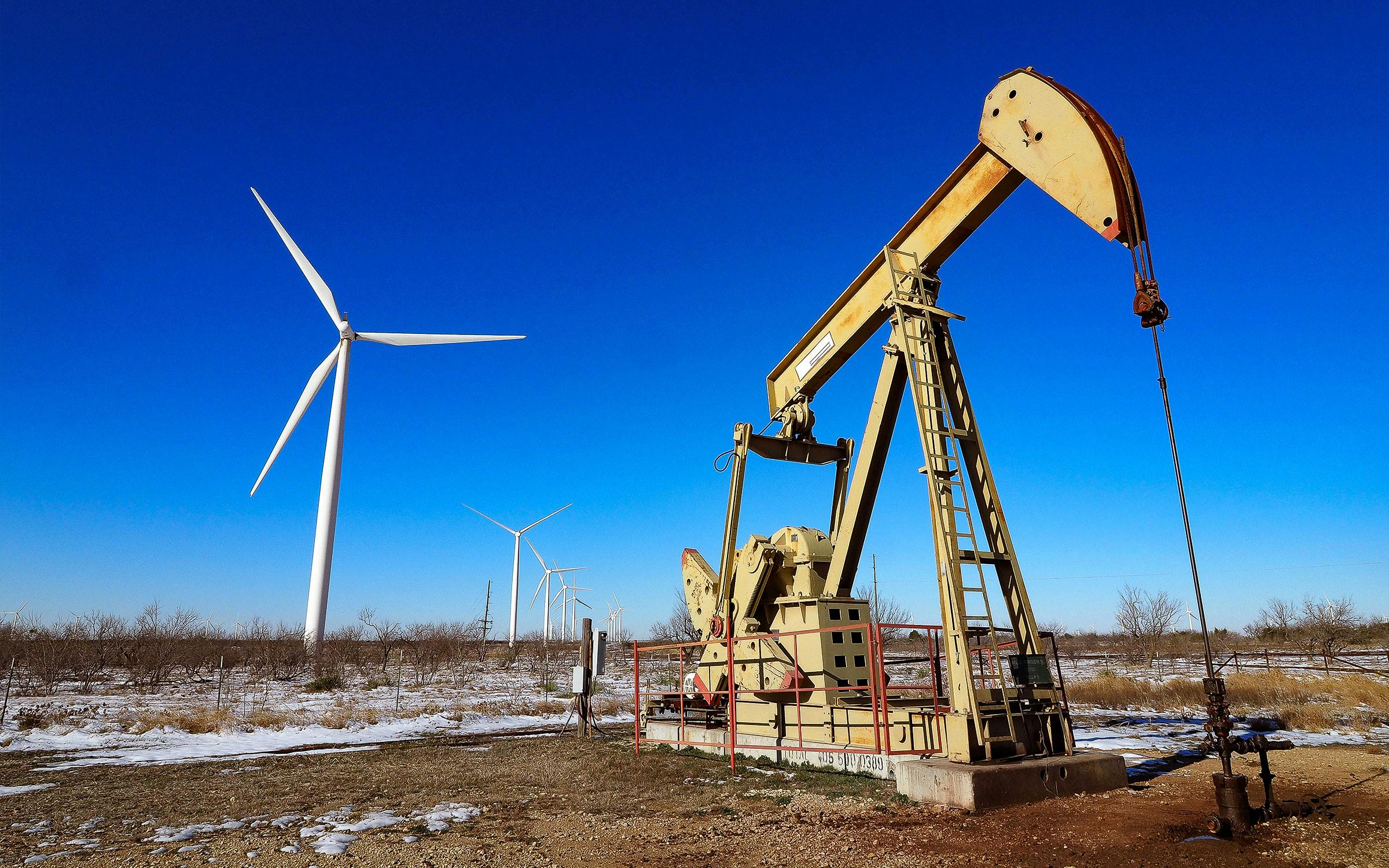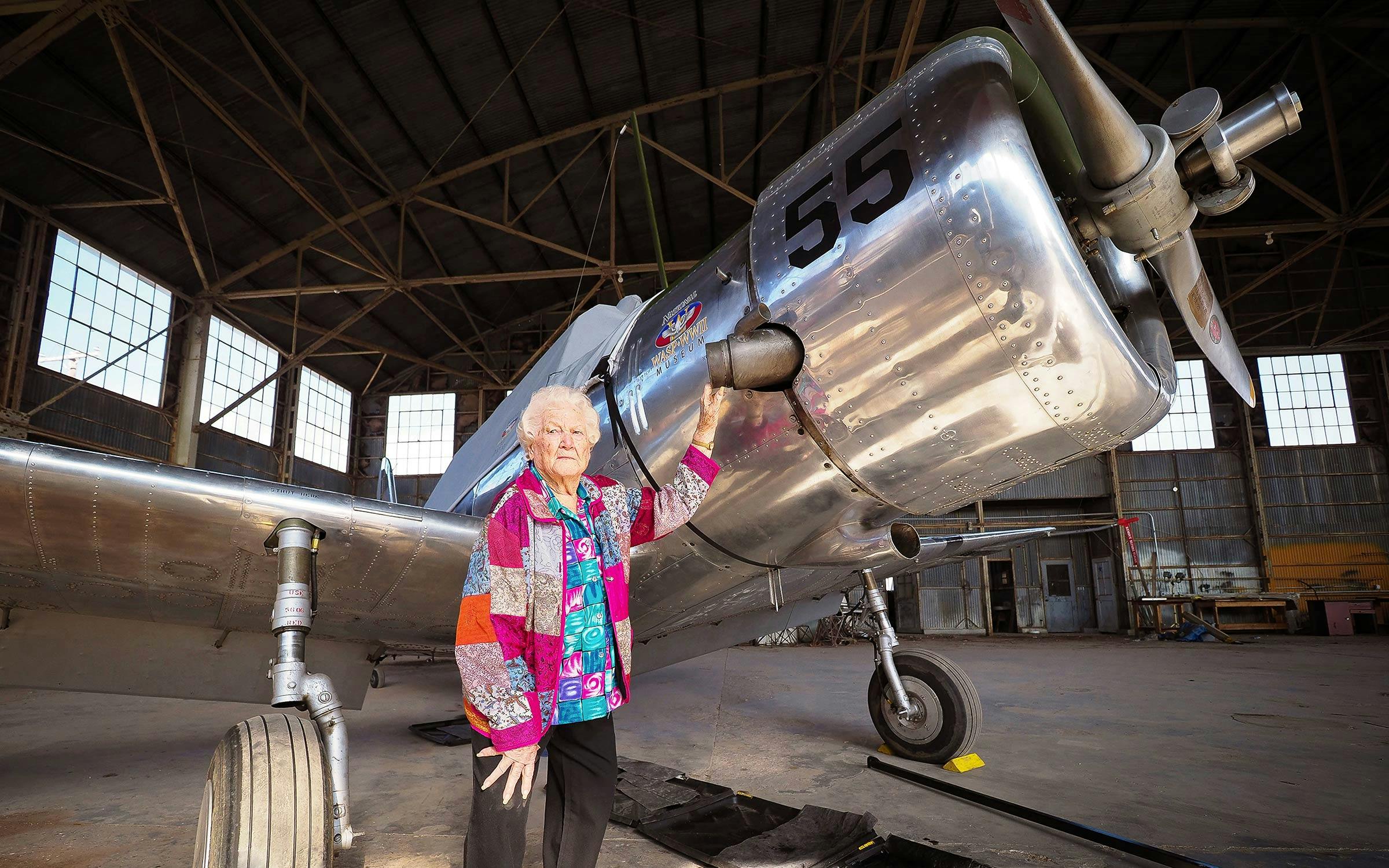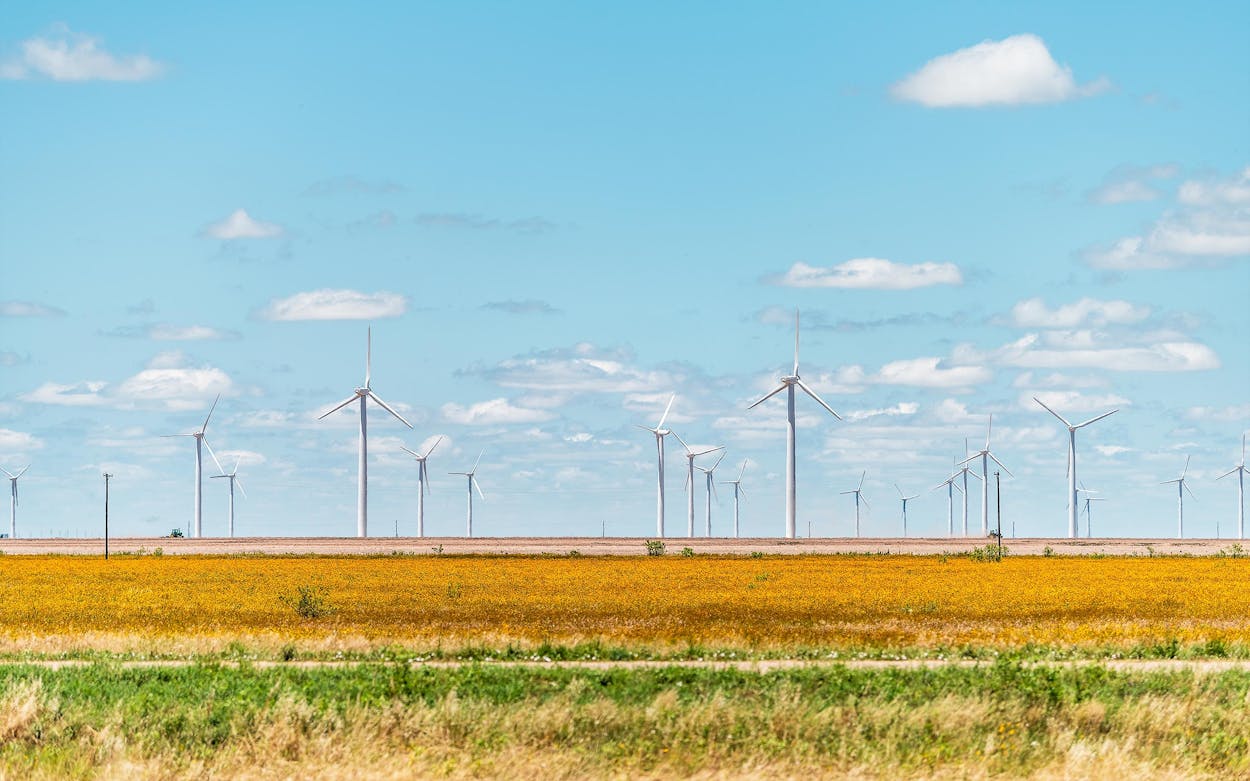Wind turbines sprout like giant metal pinwheels all across the sprawling prairie that surrounds Roscoe and Sweetwater, their powerful, white fiberglass blades whirling in the West Texas breeze.
More than 1,300 of the structures, each taller than the Statue of Liberty, lasso the wind of Nolan County to generate power that is then delivered—or perhaps not delivered, as during the recent deep freeze that strained the state’s electric grid—to San Antonio, Dallas, and other Texas cities. I could stare at them for hours, contemplating how they’ve changed this landscape, an hour’s drive west of Abilene, since their installation began in 2001.
Roscoe and its larger neighbor eight miles down the road, Sweetwater, don’t beckon tourists the way the mountains of the Big Bend or the spring-fed rivers of Central Texas do. But the small towns are worth a stop for a little live music, a fantastic museum, and some dang good home cooking. I recently spent a few days at my stepmom’s family ranch to listen to coyotes yip and watch turkeys strut, as well as to explore the area, which has hosted a rattlesnake roundup since 1958.
Roscoe
Roscoe once relied on farming and ranching for its income, supporting several grocery stores, a small hospital, and an assortment of shops. But when the State Highway 84 bypass was built in 1978, it diverted Lubbock-bound traffic around the small town. The bustle began to fade.
“When I was a child [in the 1950s], there was not an empty place in town,” said Edwin “Snake” Duncan, who grew up in Roscoe and got his nickname when a rattlesnake bit him when he was thirteen years old. “Every shop was open. We had no gaps. Now we’re like a guy with teeth missing.”
Duncan moved to Maryland to teach English at Towson University, but returned to Roscoe after he retired. Now, his work revolves around the town: he writes the Roscoe Hard Times, a one-man local newspaper, and runs the Roscoe Historical Museum, where you can inspect old photographs or an antique plow.
Even without a perfect mouth of teeth, Roscoe is smiling a little more lately. In a community long reliant on the whims of weather, each of the wind turbines planted in the black dirt represents a $2 million investment that provides steady income to ranchers who lease out their land, says city manager Cody Thompson.

“If wind hadn’t come, this wouldn’t be here, [Roscoe] all would have just blown away,” said Greg Wortham, president of New Amsterdam Global Solutions, which provides consulting services for renewable energy. “Now the schools are solid, the population is solid, the outlook is solid.”
Today Texas State Technical College in Sweetwater offers training for turbine service technicians, and Roscoe Collegiate High School, known for its STEM (science, technology, engineering and mathematics) program, offers classes in drone operations. Students can also earn associate degrees from Western Texas College in nearby Snyder while they’re still in high school.
In 2010, after Roscoe legalized alcohol sales at bars and restaurants in 2009, Thompson opened a live-music venue called the Lumberyard. In non-pandemic times, big-name country acts like the late legends Ray Price, Mel Tillis, and Merle Haggard attracted crowds of 1,500 or more. People would two-step and eat chicken-fried steak in the same space where carpenters once bought two-by-fours and plywood. (The music is just now returning. Charley Crockett plays the outdoor space on May 1.)
“The Lumberyard is probably one of the biggest draws between Abilene and El Paso, as far as entertainment goes,” Thompson said. “We would be like the Billy Bob’s of West Texas.”
Around the corner, Blackland Smokehouse serves up napkin-worthy brisket, ribs, turkey, and sausage (get your brisket sandwich on a sourdough bun), and a few blocks away, Vickie’s Gifts sells home decor, clothing, and knickknacks. I wander in, and walk out with a soft throw blanket made of faux cowhide.
“It’s more than just a retail shopping place,” owner Koti Lindsey said of the six-thousand-square-foot boutique. Her mother, Vickie Haynes, opened it in 1998 to find focus after Koti’s brother died suddenly. “What we want it to be for people is a well, where they can come and feel better when they leave, whether they spend a dime or not.”
There are signs of growth in Roscoe, such as the handful of new houses recently built at a subdivision with at least seventy lots called Young Family Estates. A Sweetwater company, Balatize Broadband Services, just notched its busiest year yet, wiring homes and businesses here with high-speed internet.
For some longtime residents like Mayor Pete Porter, who has lived in Roscoe since he was four, the changes are almost unbelievable. “Growing up here, if anybody had told me we’d be dancing out in the open or you could buy a beer legally in Roscoe, I’d have called them crazy,” Porter said. “Except for Merkel, all the other little towns [nearby] have dwindled away to almost nothing. Roscoe was going that direction.” Wind energy, he said, changed that.
Which is why every October, residents take to the streets for the West Texas Wind Festival, which celebrates those rows of turbines that turned this town around. The town spills out for live music, fireworks, and the Plowboy Mudbog competition, where drivers see how far they can drive their cars into a pit of mud before getting stuck.
Sweetwater
Roscoe wooed me early, but Sweetwater won my heart as soon as I discovered the National WASP World War II Museum, which honors the nearly 1,100 Women Airforce Service Pilots who trained at Avenger Field in Sweetwater during World War II. About 25 of those pilots are still alive; the youngest is 96 years old.
My chances of meeting a veteran were slim. But I got lucky. During a walk through the museum’s hangars, which are closed until May 8 for expansion and renovation, I got to meet someone special: a 99-year-old woman named Jessie Lou Monroe McReynolds, a former mechanic who worked on the planes those pilots flew.
“The boys had all gone into the service and they needed somebody to work, and I was willing to work,” McReynolds told me, as she scooted her walker across the floor of a hangar where the museum stores a restored Vultee BT-13. She placed her hand on the metal skin of the aircraft. “I enjoyed it very much.”

McReynolds grew up on a farm in Nolan, nineteen miles south of Sweetwater, the second-oldest of ten children. Working as a mechanic was a pleasant change from the drudgery of milking cows, she said. She brought her own tools to work at Avenger Field and wore a blue jumpsuit. Her tasks included adjusting the planes’ carburetors, changing oil, and swapping out spark plugs.
The WASP Museum opened in a cavernous but creaky old hangar at Avenger Field in 2005; it unveiled a brand-new, hangar-shaped building in 2017. The ashes of thirteen of the former pilots are spread on the airfield outside its doors, and handprints of seventy of the pilots are displayed inside, along with vintage aircraft, photographs, logbooks, an old flight simulator, letters, and uniforms. The newly remodeled site will include more space to exhibit artifacts like aeronautical charts, gear, and clothing, plus a gift shop and an education center.
“They ferried airplanes, they tested airplanes coming out of the shop; they ferried personnel and towed gunnery targets, which meant they had live ammunition coming at them,” said museum director Lisa Taylor. “They were instructors for the men, too.”
Besides the WASPs, part of the museum is dedicated to all female aviators. “It’s our hope that young people, especially young women, will look at that and maybe see themselves,” Taylor said.
After the museum, I needed food. Allen’s Family Style Meals has been operating continuously out of the same house on East Broadway in Sweetwater since 1952. Just $11.50 (or $4.50 for a kid’s meal) buys the best platter of fried chicken you’ve eaten since you last saw your nana, plus sixteen side dishes, from okra to yellow squash to cobbler, all served family style. Billy Allen, who was manning the register when I dropped by, told me his grandmother opened the restaurant in her home. “She started with that one table,” he said, pointing to an eight-top along the wall.
I took my chicken to go, then headed back to my stepmom’s ranch, where we settled on the back porch, lit a fire in the chiminea, and reveled in the simplicity of good food. An owl hooted in the distance; the stars popped out on the velvet of the night sky. And a few miles away, just out of sight, the windmills whirled on.
If You Go
Blackland Smokehouse
822 W. Broadway, Roscoe
325-766-3374
The Lumberyard
7 Cypress, Roscoe
325-766-2457
Vickie’s Gifts
211 Main, Roscoe
325-766-3407
National Wasp World War II Museum
(The museum is closed for renovations and is set to reopen May 8.)
210 Avenger Field Road, Sweetwater
325-235-0099
Roscoe Historical Museum
20 Cypress, Roscoe
312-802-2407






